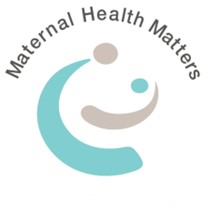“Act now for safe and respectful childbirth!”
World Patient Safety Day 2021

The theme selected for World Patient Safety Day 2021 is “Safe maternal and newborn care”, due to the significant burden of risks and harm women and newborns are exposed to when receiving unsafe care during childbirth.
The World Health Organization urges all stakeholders to “Act now for safe and respectful childbirth!”
Disrespectful maternity care represents a dimension of violence against women and is a significant public health issue, with an ever increasing number of women emerging from pregnancy and birth feeling traumatised as a consequence of the disrespect, abuse and the violence they encounter. This abuse, can vary from verbal insults to a refusal of information, authoritarian behaviour, such as forced immobilisation, forced monitoring, or an unwanted vaginal – that is any act that forces the pregnant woman to undergo something against her will or which strips her of her dignity, including the problem of obstetric violence that arises in the context of over-medicalising birth & coercive control.
Women’s comments from our survey
“Birth is often presented as something that happens to a woman rather than something done by her; being phrased differently may help women feel more in control, more relaxed, and have better birth outcomes.”
“More respect for people who are pregnant, and their babies / Informed consent in public hospitals / Staff advocating for the people they care for, rather than coercing them into treatment that may be unnecessary and not properly explained / Staff actually standing with women to support and empower them, rather than undermining their confidence and self-esteem ”
“Increased education for healthcare providers and an attitude of respect to women. Too many times, I was presented information when attending maternal appointments in a fear based manner, luckily for me I’m an educated with a health and science background & it didn’t impact my care. But for anyone who is not, the fear imposed and push for interventions was strong.”
We, with other community and consumer organisations, health experts and the WHO have identified obstetric violence as a public health emergency that requires a co-ordinated prevention and response strategy. Prioritising prevention is an absolute moral imperative. Survivors of unsafe, disrespectful maternity care endure daily the impact. If we do not protect women’s and children’s safety during maternity care, we fail as a nation.
Multiple actions are required. Some are obvious:
- Achieve respectful maternity care for all women, through implementing strategies that prevent the systemic mistreatment of pregnant women, mothers and their advocates within the maternity services system.
- The government strategy – Woman-centred care: Strategic directions for Australian maternity services would ensure that all women receive respectful maternity care; however, it is yet to be implemented. We call for the strategy to be funded, implemented and evaluated
- All women to have continuity of care, with a known midwife.
- Information on maternity care options so as to make an informed decision.
- Access to comprehensive postnatal care, with sustained increases in crisis intervention, support services and workforce capacity.
- Address the experiences of pregnant women and their children across all approaches, including prevention, early intervention, intervention, response and recovery, through responsive, targeted and meaningful approaches that are tailored to the diversity of pregnant women.
- Considerations of care pathways, pre-pregnancy trauma and experiences of violence, language barriers, prejudice, racism, culture, religious affiliation and community beliefs, disability and age are intersectional disadvantages particularly critical and enable a more nuanced understanding of gendered power imbalances and how systemic responses can be enhanced to empower and protect pregnant women.
- Funding for health education in schools re human rights and respectful care;
- Pre-pregnancy and early pregnancy support programs so women understand their rights and their options to achieve respectful maternity care during pregnancy;
- Providing transition to parenting programs during pregnancy that prepare both men and women for the joys and challenges of parenting and maintaining personal safety;
- Expanded postnatal support services up to twelve months after the birth so as to recognise and respond to the transition to parenthood stresses that have the potential to impact on personal safety, and
- Education of maternity care professionals on human rights and respectful maternity care, working in partnership with women, with culturally sensitivity.
- Measure the prevalence of violence and abuse in maternity care, and monitor prevalence over time to see if it is declining.
- Governments using their economic power to support / force the health sector to provide respectful maternity care.
